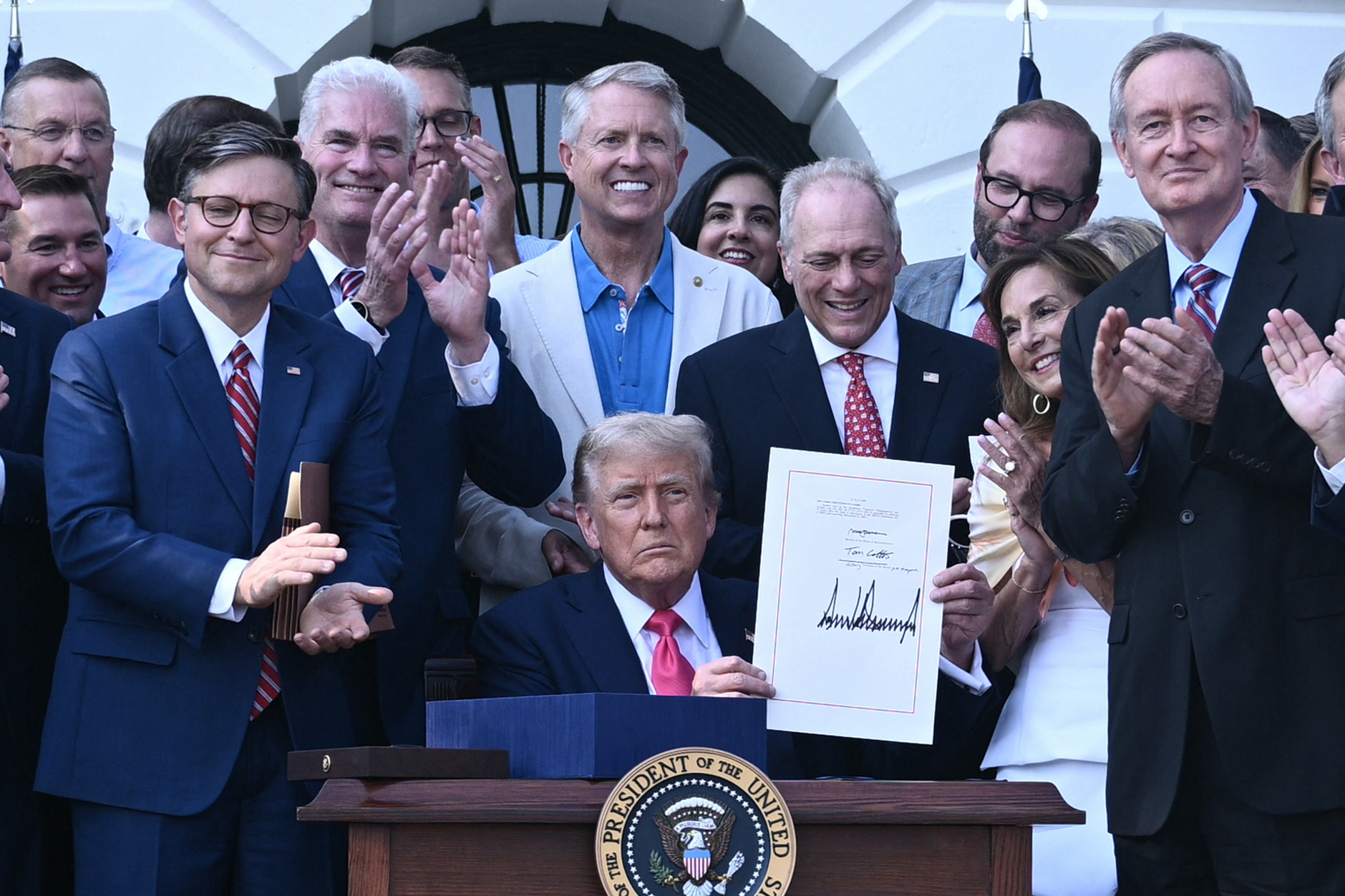Last week, the US Congress passed and President Donald Trump signed into law a spending and tax cut bill, dubbed the "One Big Beautiful Act" (OBBBA). Scientists from the REPEAT Project at Princeton University (New Jersey, USA) have analyzed the impact of this new policy on the country's energy transition and climate goals.
 |
US President Donald Trump displays his signature on the "One Big Beautiful Act" at a White House ceremony on 4/7. Photo: AFP |
US President Donald Trump displays his signature on the "One Big Beautiful Act" at a White House ceremony on 4/7. Photo: AFP
According to the report "The Impact of OBBBA on America's Energy Transition," the comprehensive repeal of Biden-era climate policies will derail the nation's path toward net-zero emissions. Experts have modeled energy and emissions under OBBBA, the previous Biden policies, and the net-zero pathway based on the Nationally Determined Contribution (NDC).
Based on this model, Carbon Brief estimates that the series of executive actions following the act will cause the US to emit an additional 2 billion tons of CO2e compared to the net-zero scenario under the NDC. This increase is equivalent to the annual emissions of Indonesia, the world's sixth-largest polluter.
Cumulatively over 5 years, Carbon Brief calculates that Trump's "One Big Beautiful Act" will increase US emissions by 7 billion tons of CO2e. Late last year, when Trump was newly elected president, Carbon Brief projected that the new administration's reversal of Biden's climate policies would lead to approximately 4 billion tons more CO2e emissions compared to the previous trajectory.
According to data from the US Environmental Protection Agency (EPA), the US emitted 7.49 billion tons of CO2e in 2005, peaking at 7.52 billion tons in 2007, and then gradually declining in subsequent years. In 2022, the most recent reporting year, the country emitted over 6.3 billion tons of CO2e.
The energy sector shows the most significant emissions difference. OBBBA repeals most of the clean energy tax credits passed under Biden's Inflation Reduction Act (IRA). These credits supported investments in wind, solar, battery storage, clean fuels, and electric vehicles.
In addition, the new act also cancels billions of USD in unspent funding for climate projects from both the IRA and the Infrastructure Investment and Jobs Act (IIJA).
This policy reduces new solar and wind capacity installations by 29 GW and 43 GW respectively by 2030, and 140 GW and 160 GW by 2035 (compared to the present). This contributes to a reduction of over 820 TWh of clean electricity in 2035. The slow development of clean energy makes the US more reliant on fossil fuels such as natural gas and coal, and also leads to a decrease in total electricity supply compared to the scenario of maintaining Biden's policies.
With this energy mix, experts calculate that US household and business energy expenditures will increase by 28 billion USD annually by 2030 and 50 billion USD by 2035.
Furthermore, based on the "social cost of carbon" estimates from the EPA during the Biden administration, the additional 7 billion tons of CO2e will cause 1,600 billion USD in damage to the global climate.
"This looks like a bad act to me," Jesse Jenkins, a lecturer at Princeton University and leader of the REPEAT Project, wrote on LinkedIn. In addition to increasing energy costs for consumers, he added that the act also increases taxes on new electricity supply amid rapidly growing electricity demand.
Bao Bao (according to Carbon Brief, Carbon Credit, REPEAT)












